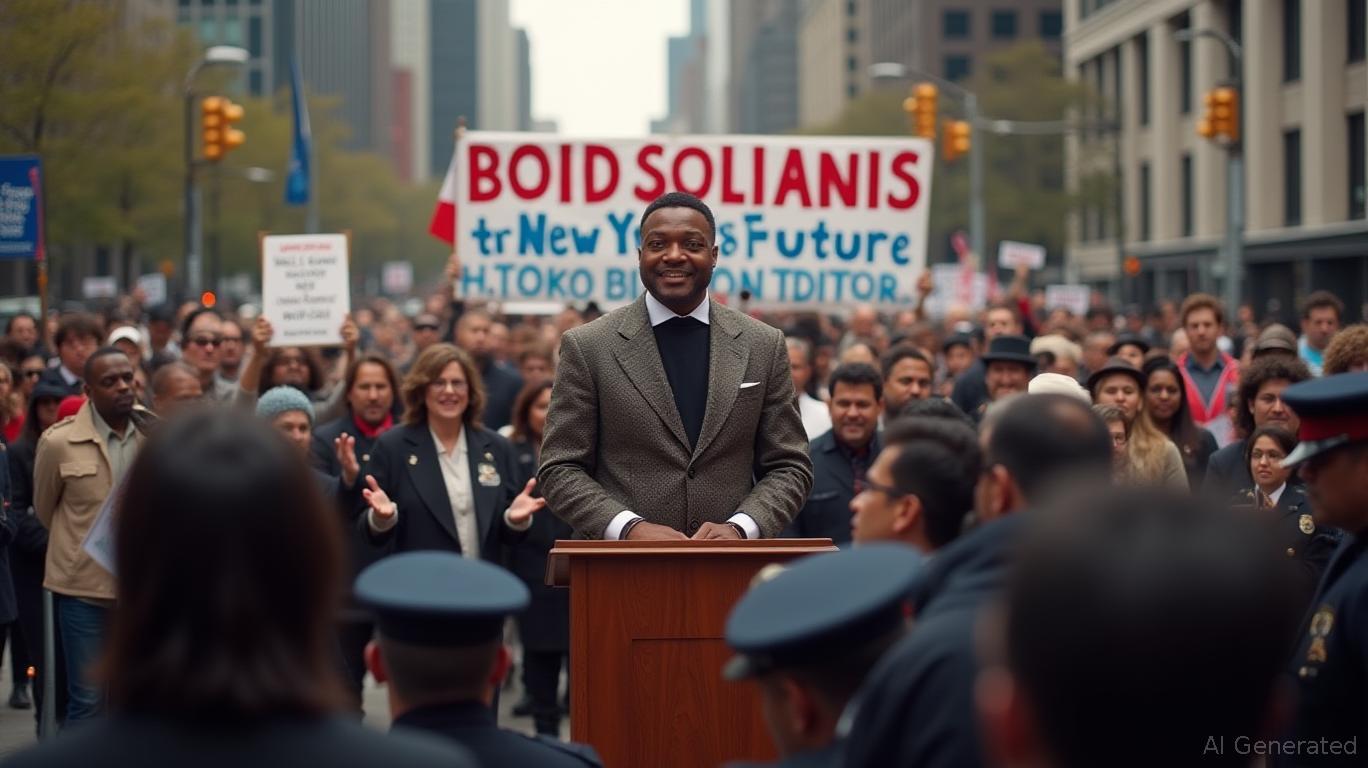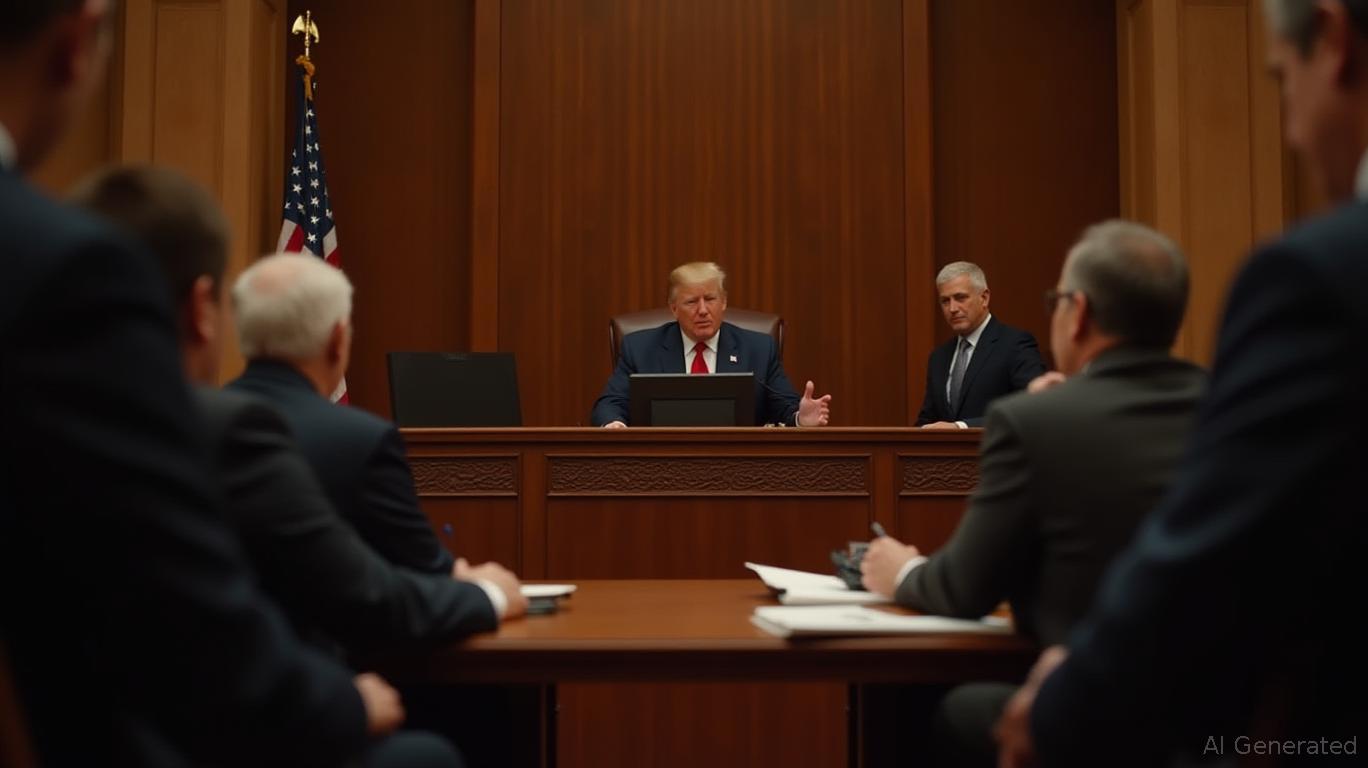Bitcoin Updates: Texas Community's Attempt to Control BTC Mining Falls Short, Underscoring Ongoing Regulatory Hurdles for the Industry
- Hood County voters rejected Mitchell Bend's incorporation bid by 25%, blocking noise regulations on MARA's Bitcoin mining facility. - MARA sued over petition flaws, claiming the proposed city aimed to "regulate it out of business," but the case was dismissed before the vote. - Residents cited environmental concerns while MARA implemented noise mitigation measures, highlighting tensions between crypto mining and local communities. - The outcome underscores regulatory challenges for Texas-based miners as l
An effort by a rural Texas neighborhood to establish its own city government in order to enforce noise restrictions on a

MARA strongly resisted the incorporation plan, submitting a 47-page lawsuit in federal court in October 2025, as outlined in a
Locals, organized as Citizens Concerned About Wolf Hollow, have long objected to the noise and environmental effects of MARA’s air-cooled mining facility. In response, the company implemented noise reduction steps, including building a 24-foot sound barrier and transitioning to quieter immersion cooling systems. Two independent noise assessments in 2024 determined the site operated below Texas’s 85-decibel threshold, though one study noted that state regulations are “quite lenient” compared to typical local standards, as reported by Data Center Dynamics.
The defeat of the incorporation measure does not resolve the dispute. MARA’s attorneys continue to argue that the county’s handling of the petition involved constitutional breaches, as described in the Bitcoin.com post. At the same time, residents remain concerned about the data center’s future growth. “Our main objective was to safeguard our way of life,” stated a representative for Citizens Concerned About Wolf Hollow, who asked not to be named due to ongoing legal proceedings.
This conflict is part of a larger pattern of friction between crypto mining companies and local populations. Texas, known for its affordable electricity, has experienced similar disputes over noise, land use, and environmental issues, according to
For now, the failure to incorporate Mitchell Bend means there will be no immediate new local regulations affecting MARA’s Granbury facility. Still, the company’s legal actions highlight how vulnerable its operations can be to local opposition and regulatory uncertainty. “This situation demonstrates how unpredictable municipal rules can disrupt even large-scale mining businesses,” commented a blockchain industry analyst.
---
Disclaimer: The content of this article solely reflects the author's opinion and does not represent the platform in any capacity. This article is not intended to serve as a reference for making investment decisions.
You may also like
AAVE drops by 2.77% as it faces $1 trillion lending goal and cautionary notes from its founder
- Aave (AAVE) nears $1 trillion in total loans despite 34.87% annual price decline and recent volatility. - Horizon RWA deposits exceed $520M, showing growing institutional adoption of DeFi lending protocols. - Technical analysis highlights $179.27 support level and potential $250 retest if key Fibonacci levels hold. - Founder Stani Kulechov warns of DeFi systemic risks, urging standardized governance and transparency reforms. - Justin Sun shifts $154M ETH to Ethereum staking while MetaAlpha deposits $22.7
Democratic Socialist Mamdani's Ambitious Proposals Divide New York Amid Shifting Political Landscape
- Zohran Mamdani, a 34-year-old Democratic socialist, leads polls to become NYC's first Muslim mayor with progressive policies targeting wealth taxes and social services. - His campaign challenges Democratic establishment norms, uniting younger/immigrant voters while polarizing moderates and Jewish communities over governance approaches. - Funded by 1% wealth tax proposals and $13M from 40K small donors, Mamdani's grassroots model contrasts with Cuomo's traditional fundraising and party endorsements. - Tru

Supreme Court Decision on Tariffs May Require $140 Billion in Refunds and Prompt Federal Reserve to Lower Rates
- UBS warns a Supreme Court ruling against Trump's tariffs could force $140B refunds, straining U.S. fiscal resources and prompting potential Fed rate cuts. - The refunds stem from 39% Swiss tariffs deemed potentially unlawful, with fiscal impact equivalent to 7.9% of 2025's projected budget deficit. - Legal challenges highlight executive overreach risks, while reduced tariffs could boost consumer spending and ease inflation, creating room for Fed easing. - Swiss business leaders have lobbied Trump to lowe

Ethereum Updates: TRON's GreatVoyage: Strengthening USDT's $122B Network to Compete with Ethereum
